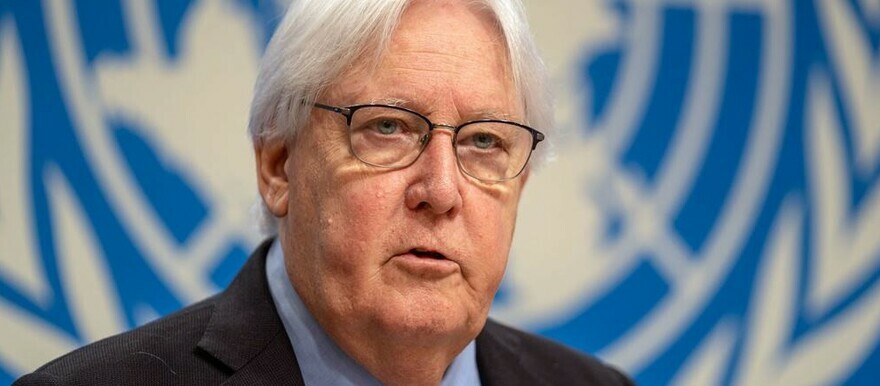In a stark plea for urgent intervention, Martin Griffiths, the Under-Secretary-General for Humanitarian Affairs and Emergency Relief Coordinator, issued a statement on January 4, 2024, highlighting the alarming escalation of Sudan’s conflict over the past nine months.
The war has plunged the nation into a relentless downward spiral, intensifying human suffering, restricting humanitarian access, and eroding hope. As the situation worsens, the year 2024 is now calling on the global community, especially those with influence over the conflicting parties, to take immediate and decisive action to halt the destructive conflict and secure the vital humanitarian operations crucial for millions of civilians.
Griffiths emphasized the escalating gravity of the situation, stating, “With hostilities now reaching Aj Jazirah State, the stakes have risen considerably. Over 500,000 people have fled the fighting in and around the state capital, Wad Medani, traditionally a haven for those displaced by conflicts elsewhere. The continuous large-scale displacement raises concerns about the potential for a cholera outbreak in the state, with over 1,800 suspected cases already reported.”
Highlighting the alarming shift, Griffiths noted, “The same disturbing abuses that have characterized this war in other hotspots, such as Khartoum, Darfur, and Kordofan, are now emerging in Wad Medani. Reports of widespread human rights violations, including sexual violence, underscore the failure of the conflicting parties to uphold their commitments to protect civilians.”
“Equally troubling are the doubts surrounding the parties’ adherence to international humanitarian law. The significance of Wad Medani as a pivotal hub for relief operations magnifies the impact of the fighting and the looting of humanitarian warehouses and supplies. This poses a significant setback to our efforts in providing essential aid, including food, water, and healthcare. Once again, I vehemently condemn the looting of humanitarian supplies, as it severely undermines our ability to save lives,” Griffiths stressed.
“Throughout Sudan, the daunting reality looms as nearly 25 million people are anticipated to require humanitarian assistance in 2024. However, the grim truth is that escalating hostilities are hindering our ability to reach the majority of them. Efforts to deliver aid across conflict lines have come to a standstill, and despite the cross-border aid operation from Chad continuing to be a lifeline for those in Darfur, endeavours to provide assistance in other regions face mounting threats,” emphasized Griffiths.
He underscored the broader implications, stating, “The intensifying violence in Sudan is not only endangering the well-being of its people but is also posing a significant risk to regional stability. This conflict has triggered the largest displacement crisis globally, displacing over 7 million people, with 1.4 million having sought refuge in neighbouring countries that are already grappling with substantial refugee populations.”
Looking ahead, Griffiths asserted, “For the people of Sudan, 2023 was a year marked by suffering. In 2024, it is imperative that the conflicting parties take three critical actions to bring an end to this crisis: protect civilians, facilitate humanitarian access, and cease the fighting – immediately.”




